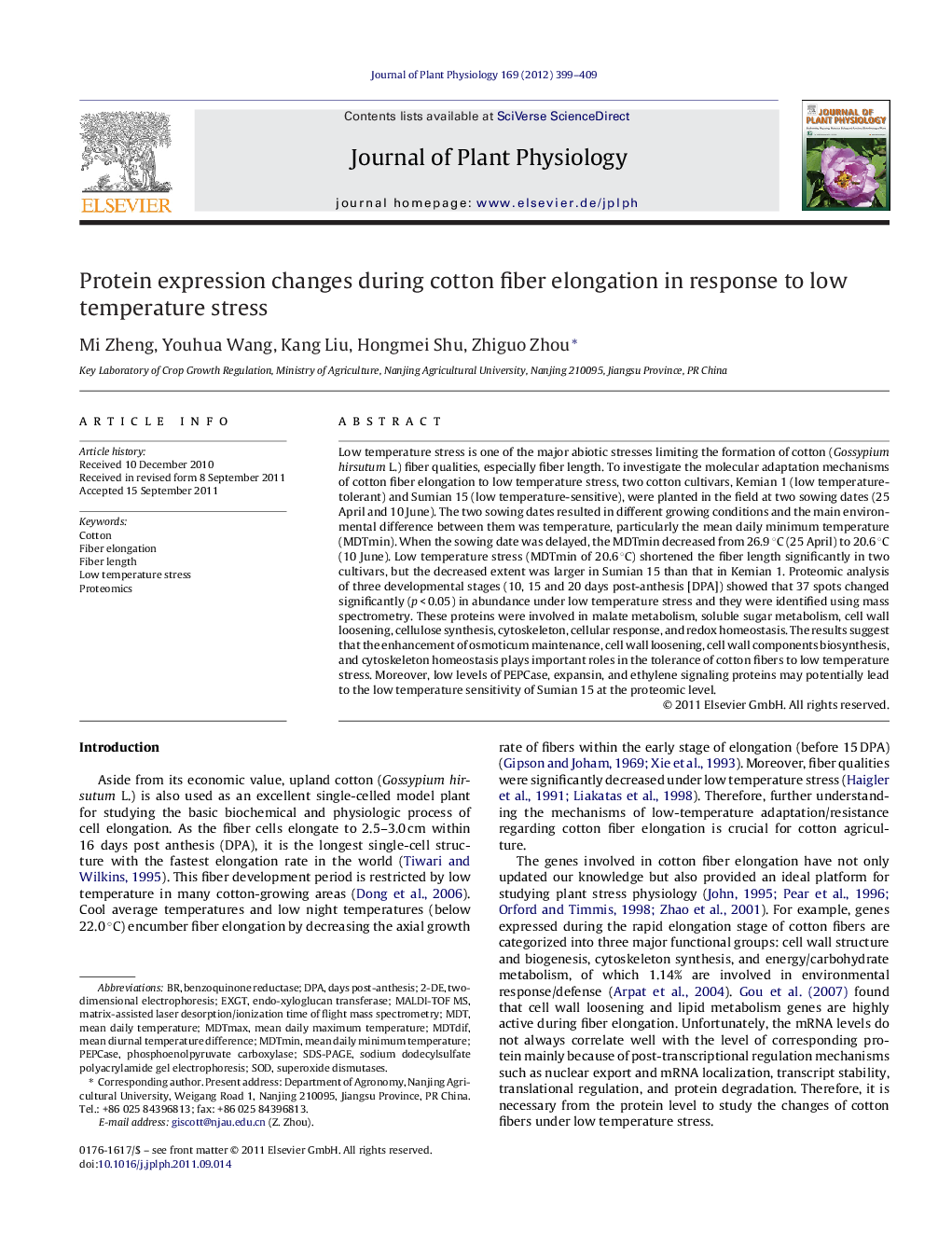| Article ID | Journal | Published Year | Pages | File Type |
|---|---|---|---|---|
| 2056319 | Journal of Plant Physiology | 2012 | 11 Pages |
Low temperature stress is one of the major abiotic stresses limiting the formation of cotton (Gossypium hirsutum L.) fiber qualities, especially fiber length. To investigate the molecular adaptation mechanisms of cotton fiber elongation to low temperature stress, two cotton cultivars, Kemian 1 (low temperature-tolerant) and Sumian 15 (low temperature-sensitive), were planted in the field at two sowing dates (25 April and 10 June). The two sowing dates resulted in different growing conditions and the main environmental difference between them was temperature, particularly the mean daily minimum temperature (MDTmin). When the sowing date was delayed, the MDTmin decreased from 26.9 °C (25 April) to 20.6 °C (10 June). Low temperature stress (MDTmin of 20.6 °C) shortened the fiber length significantly in two cultivars, but the decreased extent was larger in Sumian 15 than that in Kemian 1. Proteomic analysis of three developmental stages (10, 15 and 20 days post-anthesis [DPA]) showed that 37 spots changed significantly (p < 0.05) in abundance under low temperature stress and they were identified using mass spectrometry. These proteins were involved in malate metabolism, soluble sugar metabolism, cell wall loosening, cellulose synthesis, cytoskeleton, cellular response, and redox homeostasis. The results suggest that the enhancement of osmoticum maintenance, cell wall loosening, cell wall components biosynthesis, and cytoskeleton homeostasis plays important roles in the tolerance of cotton fibers to low temperature stress. Moreover, low levels of PEPCase, expansin, and ethylene signaling proteins may potentially lead to the low temperature sensitivity of Sumian 15 at the proteomic level.
